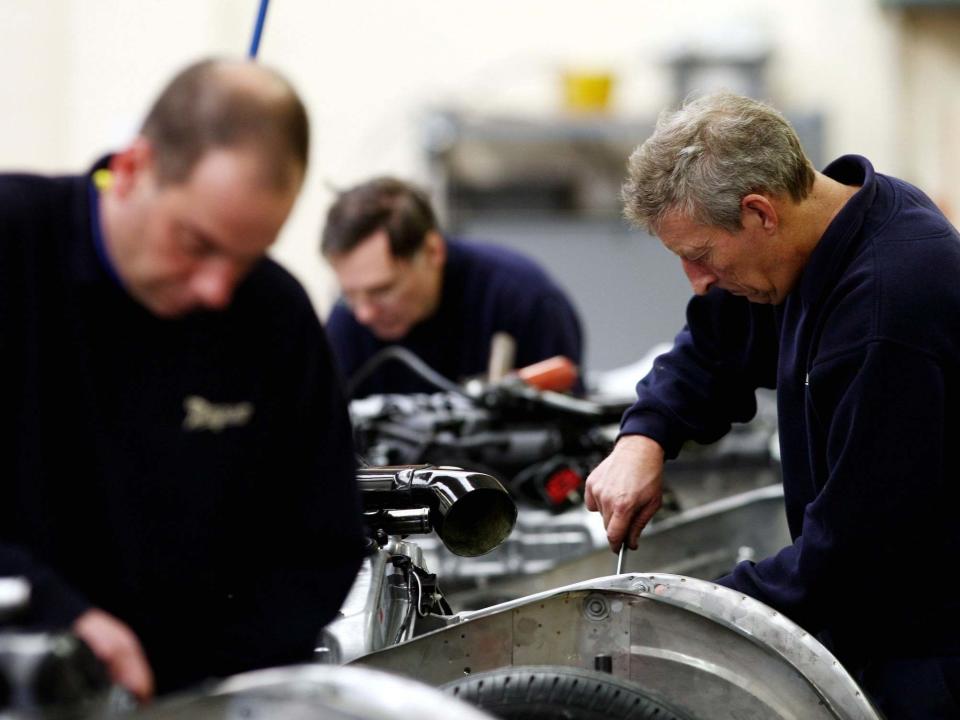UK economy fails to grow for third month in a row as Brexit effect takes hold

The UK economy has suffered its worst three months in more than a decade, after unexpectedly flatlining in October amid continued Brexit uncertainty and increasing global trade tensions.
The economy registered zero growth in October after contracting in August and September. Not since the aftermath of the financial crisis in 2009 has economic output failed to grow for three straight months. Analysts had predicted 0.1 per cent growth in October.
The UK services sector, which accounts for more than three-quarters of the economy, grew 0.2 per cent in October but construction output fell by 2.3 per cent, the Office for National Statistics said.
Overall, gross domestic product (GDP) was up 0.7 per cent in the month compared to a year earlier, the slowest annual rate in more than seven years.
The UK is on course for little over 1 per cent growth this year – its worst full-year performance in a decade.
Stockpiling of goods ahead of the prime minister’s Brexit deadline on 31 October was less pronounced than ahead of the first deadline in March.
More bad news could be in store for Boris Johnson, with recent surveys for November’s outlook indicating contraction in all major sectors of the economy.
Jack Leslie, economic analyst at the Resolution Foundation, said: “The UK economy has slowed from a crawl to a halt over the course of 2019.
“Crucially the UK’s domestic challenges come against a weak global economic outlook for next year.
“While the main parties have avoided any discussion of this challenging economic environment during the election campaign, navigating it will be a central task for the next government nonetheless.”
The major parties have offered differing views of how to tackle the country’s economic malaise after Thursday’s general election.
Mr Johnson’s Conservatives have pledged to unleash the UK’s growth potential by completing the Brexit process and a new EU trade deal by the end of next year, a timetable that has been criticised by opponents as unrealistic.
Labour promises to borrow to invest in stimulating the economy, spending big on infrastructure and creating new jobs in green industries.
Howard Archer, chief economic advisor to the EY Item Club, said: “We expect GDP growth to be limited to 1.3 per cent in 2019, which would be the weakest performance since 2009 and down from 1.4 per cent growth in 2018. The economy got off to a poor start to the fourth quarter amid a myriad of uncertainties – Brexit, domestic political, global economic – after stuttering in the latter part of the third quarter.”
Despite the lacklustre growth figures, the pound rose against both the dollar and euro, in apparent indication that currency markets may be betting on a Conservative majority on Thursday.
The pound was up a quarter of a cent against the dollar, to $1.318, and 0.1 per cent against the single currency, to €1.19.
Separate trade figures released on Tuesday showed the gap between imports and exports widened to a seven-month high of £5.2bn in October from £1.9bn the previous month.
Samuel Tombs, chief UK economist at Pantheon Macroeconomics, said stockpiling of exports ahead of the original 31 October Brexit deadline had “triggered another short-term surge in imports, prompting the overall trade deficit to balloon”.
Read more
Currency traders think Johnson’s already won it

 Yahoo Finance
Yahoo Finance 